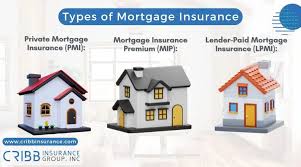
When applying for a mortgage, most people focus on their credit score, income, and down payment. But there’s another factor that can quietly determine whether you get approved—or how much it will cost you: insurance.
Why Lenders Care About Insurance
A mortgage is a long-term loan, and lenders want to ensure their investment is protected. Insurance acts as a safety net for both the homeowner and the bank. Without it, unexpected risks could leave the borrower unable to repay, putting the lender’s money at risk.
Types of Insurance That Matter for Mortgages
- Homeowners Insurance
- Required by nearly all lenders.
- Protects the property (the lender’s collateral) from damage or loss due to fire, storms, theft, or accidents.
- Private Mortgage Insurance (PMI)
- Often required if you put down less than 20%.
- Protects the lender if you default on payments.
- Life and Disability Insurance (Optional, but Sometimes Encouraged)
- Some lenders suggest coverage that ensures mortgage payments continue if illness, injury, or death occurs.
- Flood or Hazard Insurance
- In certain regions, extra coverage is mandatory to guard against local risks (like hurricanes or earthquakes).
How Insurance Can Influence Approval
- Lack of Coverage = Loan Denial
No proof of homeowners insurance? Your mortgage won’t close. - Premium Costs Affect Affordability
High insurance premiums increase your debt-to-income ratio, which could lower the amount you qualify for. - Policy Lapses = Red Flags
A history of canceled or lapsed policies might make lenders view you as financially risky.
The Bottom Line
Insurance is more than just a monthly bill—it’s a key part of securing a mortgage. Without the right policies in place, lenders may hesitate to approve your loan or may offer less favorable terms. For homebuyers, understanding this connection can make the mortgage process much smoother.
